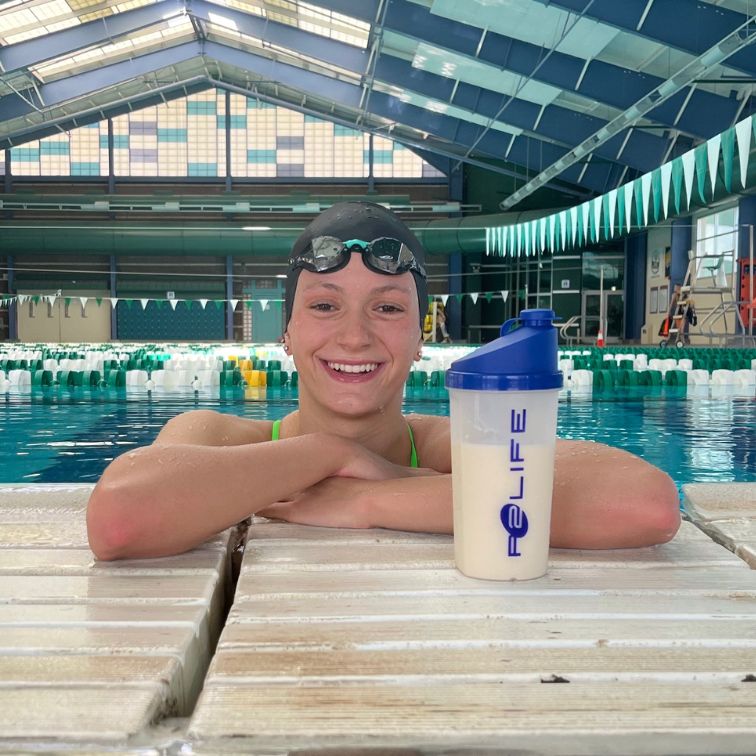Let’s start establishing exactly what our goal is. It is not to just make you healthier or faster. It is also to help make you as healthy as humanly possible. We know this because we know that - Only when you achieve maximum health can you achieve maximum performance.

How to Achieve Maximum Health Through Nutrition - Part 1
Welcome to the P2Life Maximum Performance Blog Series
Maximum Performance means everywhere and in everything you do. Be it the pool, classroom, or boardroom.
So whether you are interested in your health and performance, or that of your children or other loved ones, we know you will find what we say here, along with our 40+ years of seeking and learning and accomplishing exactly that, of great value.
This week we will explain what nutrients you need and related important factors you need to know. Next, we will cover how to make sure your body has full access to them, 24/7/365
Because Maximum Health Only Happens When Your Body
-
-
-
- Has every nutrient it needs.
- Has those nutrients exactly when it needs them
-
-
So before we dive into what nutrients humans need, let us start with a simple but basic fact.
To Maximize Health and Performance you must have a sound daily nutritional program that includes consuming BOTH healthy foods and nutritional supplements.
What Nutrients Do I Need?
Now let's start with what I mean when refering to nutrients you need. I mean the Proteins, Carbohydrates, Fats, (known as macronutrients) and Vitamins, Minerals, Electrolytes and Trace Elements (micronutrients). They are so important that the US government has mandated they be placed on all food labels both in amounts contained in the packaged food, but also how much that nutrient supply compares with how much you need, percentage-wise. You might recall seeing the "Daily Value" or "DV" on most labels. Remember those values are what research has indicated the “average” person needs. Athletes are not average and as such need more. The higher the athlete level, the more nutrients.
This difference between Calories and Nutrients is important as very few of us suffer from a lack of calories, they are readily available and our bodies can store them (Fat).
But consuming sufficient amounts of micro and macronutrients is a completely different matter and extremely difficult, especially in today's time-constrained, high-stressed lifestyles.
So if you do not supplement, along with having a professional nutritionist preparing your meals daily, you probably lack sufficient nutrient consumption and the resulting health and performance consequences. Sadly most nutrients, especially important water-soluble vitamins, are not stored by the body, they must be constantly consumed.
It’s much harder for our bodies to identify a lack of nutrients, harder still to know which nutrient(s) we are lacking. The only thing our body does to solve this is to get hungry. If you respond with food lacking proper nutritional content, rather predominately calories, or even worse foods considered “empty calorie foods” (processed foods with little to no nutrient content or value but lots of calories), you will get full, briefly, but you don't solve the problem. A couple of hours later the cycle repeats. Fast forward a couple of days/weeks/month(s) and that constant malnutrition leads to poor recovery which in turn can lead to illness and injury and unwanted weight gain.
An example. Think of your body as a car. It has a wide range of moving parts, needs maintenance (sleep), and has a host of different nutrient requirements, like gas (calories), oil (nutrient), tires (nutrient) etc. Lacking or missing one can have a cascading negative effect on it. Only by providing everything, it needs consistently, will it be efficient in its job. If it is lacking in tire pressure, sure it likely will get the job done, but how efficient will it be? What kind of damage will be done to it? The same applies to the stress you put on yourself. If you drive 100 miles a day you need to add more oil, check tires more often etc. The same applies to your body - those who train longer/harder need more nutrients than the average person.
It's far better to have nutrients and not need them, than need them and not have them.
What nutrients are on the label of a product?
1. Science is pointing to the benefits other "non-essential" nutrients have on the body.
In addition to proteins, carbohydrates, fats, vitamins, and minerals, ongoing scientific research has clearly shown that there are many more nutrients that all assist the human body in both health and performance. Many of them are commonly referred to as “phytonutrients”, nutrients of plant origin. Importantly while many of those phytonutrients are found in foods, many others and those considered most valuable, like adaptogens are NOT. They must be consumed through specific nutritional supplements.
Take a look at our EnduroBoost Adaptogens below if this sounds interesting. They are a favorite amongst our Olympic/Elite and Master Athletes.
2. Every nutrient is affected and influenced by other nutrients.
Most have a positive effect not in just helping, but are required by other nutrients to provide their respective benefits. The sum of all nutrients working together has a synergistic benefit, that being where the sum of all working together exceeds the sum of their individual benefits.
But some nutrients do hinder the absorption of others, a detrimental effect, so those need to be taken into account in making sure you get all you need.
The bottom line here is that unless tests have shown you to have a deficiency of a particular nutrient, do not supplement with individual vitamins and minerals, rather a multivitamin because of the greater overall benefits.
3. A single Multivitamin tablet/capsule cannot give you all the vitamins and minerals you need.
The pill would have to be bigger than the size of a golf ball to hold it all. Good luck swallowing that. An example, the current Daily Value (DV) for Calcium is 1300mg for most of us. As the common capsule you consume is only 800mg in total, hence it would take more than one entire capsule just for your daily Calcium need, Add the other Daily Values for all the other vitamins and minerals, electrolytes and trace minerals and you can understand why we estimate you would need a tablet of a golf ball size, or far too many tablets or capsules than any of us would ever want to take to consume what you need.
4. The Nutritional needs of athletes exceed the amount needed by the average person.
The final amount needed depends on numerous factors such as age, sex, and weight, but most importantly is the amount of and intensity of physical activity you have each day. That of course will vary each day and as such, your ideal nutritional intake.
5. Not all Protein is the same.
In fact huge differences. Some are vastly inferior in providing what the human body needs. An example, getting 24g of pea protein is not the same as getting 24g of casein protein.
- Protein is made up of amino acids and the amino acid needs of the human body are well known. Therefore the best protein sources are ideally those whose amino acid profiles are most like what the human body requires.
-
There are complete proteins, and incomplete. Complete proteins provide all nine of the essential amino acids the human body needs, while incomplete do not. The best protein sources are ideally those whose amino acid profiles are most like what the human body requires - aka complete proteins.
-
Complete Proteins include Whey, Casein and Soy.
-
Incomplete are proteins like tofu, pea, rice and beans.
- Athletes definitely need far more protein per day than non-athletes. Your optimal daily protein intake depends on your weight, goal, and level of physical activity: from 1.2–2.0 g/kg for active athletes to optimize recovery from training and to promote the growth and maintenance of lean mass.
- Some protein sources may actually be detrimental to Swimmers.
Others Facts About Nutrition and Foods
- There is a growing concept called “Hidden hunger”. In a nutshell, it boils down to malnutrition. Foods are not as nutritious as they used to be. Foods can only have the nutritional value of the soil in which they were grown, or food fed, and that varies enormously due to a multitude of factors. So to get the same nutritional value, you need to either eat more food (caloric gain and $) and/or supplement.
- Sadly foods today are often harvested before they have obtained their full historical nutritional value. Once harvested, foods generally also begin to lose their nutritional value, the longer it takes them to be processed, packaged and available for you to purchase, prepare and consume, the more nutritional value they have been shown to lose.
- The way foods are prepared for consumption may also negatively affect their nutritional value. For example, boiling your food takes nutrients out of the food and puts it into the water. Unless you drink the water you are losing nutritional value in your meal.
- All food once consumed still needs to be digested and then absorbed, however not all of it is absorbed. One Calcium source for example, has an absorption rate of 30% and is therefore available to you for beneficial usage. This is especially true in the case of nutritional supplements. Not all sources of vitamins and minerals are the same, some are absorbed much better.
- While the human body can store Calories (Fat) for use when needed, it cannot store many nutrients such as water-soluble vitamins, ideally they should be consumed several times during each day. However there are some nutrients that are not water soluble, so they are stored in the body for longer periods of time. Iron being an example..
- Nutritional Supplements are definitely not the same either. In our 40+ years in this industry, we have seen high-quality and very poor-quality products. Those that provide the best sources of absorbable nutrients and in therapeutic dosages, and those that do not. Finally those that have their products tested and those that do not.













Leave a comment
This site is protected by hCaptcha and the hCaptcha Privacy Policy and Terms of Service apply.